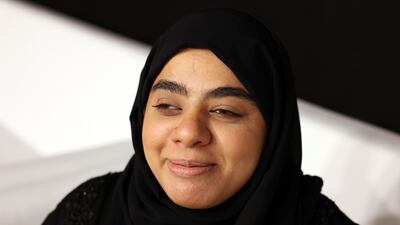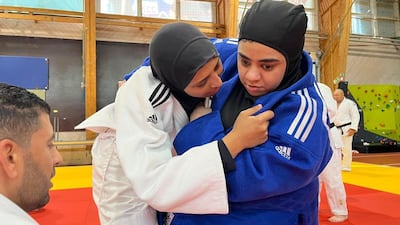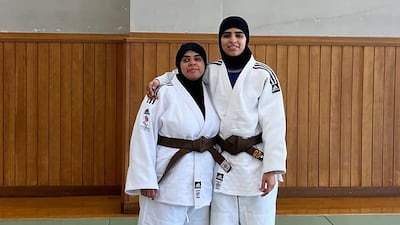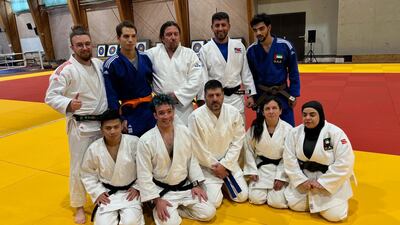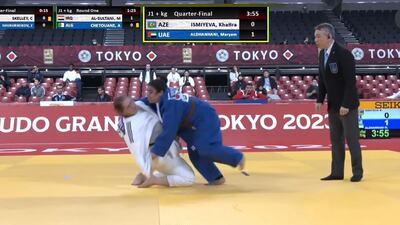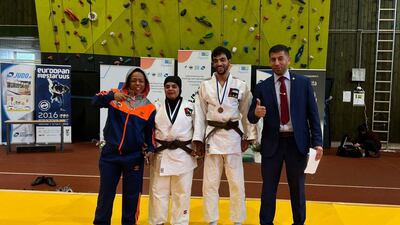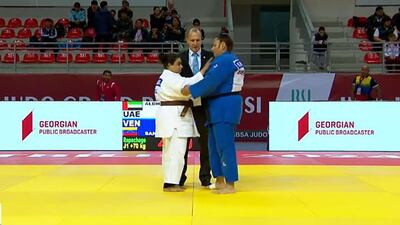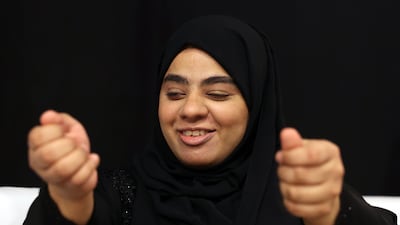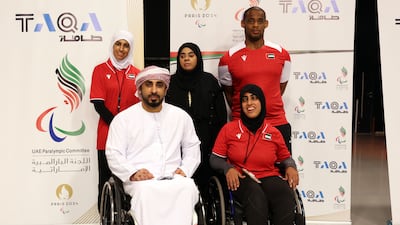It is an exciting time at The National as we launch our new look and begin to roll out a new array of features for our loyal readers, but we need your help. Please take our short survey to help us shape our future.
An Emirati athlete with the "soul of a fighter" will be the first woman from the Gulf to compete in judo at the Paralympics.
Maryam Al Dhanhani says being visually impaired is her power and wants the world to witness her passion for sport in Paris.
She is part of a 13-strong UAE contingent and among 148 para judokas, or judo contestants, from across the world to qualify for the Paris 2024 Paralympic Games that start on Wednesday.
“I like to fight, I like to win,” she told The National.
“What does it mean that I cannot see? I don’t see with my eyes, I see from my heart.
“I want all people to see me, see my power, my superpower, see me fight.”
Al Dhanhani says relying on her senses and instinct during competition has sharpened her mental strength.
Paralympic judo is exclusively for athletes with vision impairments who compete in various weight categories.
Olympic dream
Competing in the Paralympic Games has been a long-time dream for the athlete, 31, who lost her eyesight at the age of 10.
A keen sportswoman throughout high school, she represented the UAE in athletics as a teenager, running the 100m and 200m in national and international games assisted by a guide on the track.
She took a seven-year break to complete a law degree at the University of Sharjah and when she returned to competitive sport last year she took up judo.

Al Dhanhani came second in a competition in Finland last year, followed by a fourth-place finish at the Asia Para Games in Hangzhou, China.
This was followed by top 10 finishes in competitions in Azerbaijan, Japan and Georgia to secure her qualification for the Paris Games.
“When I heard I qualified for Paris, I knew I had made history,” she said. “I want to make my own story. This is just the start for me.”
Learning new moves
Al Dhanhani learnt by practising judo with her brother, who is also visually impaired.
She quickly moved from being unsettled about throwing her opponent to enjoying learning techniques to immobilise them.
“I felt bad the first time I threw another girl down but now I don’t, I want to win always,” she said.
Judo became an official sport for men at the 1988 Paralympic Games in Seoul, with the women’s competition added at Athens 2004.
Athletes are classified based on their level of impairment in two categories, with blind and nearly blind athletes in the J1 category and the partially sighted in J2.
Al Dhanhani is in the J1 category where athletes wear a red circle on their uniform to show they may need guided support before, during and after a contest.
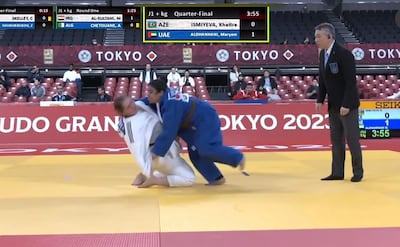
Para judo follows the same rules as the sighted version. It is based on the same tactics and movements including throwing techniques, ground holds, arm locks and choke holds, in four-minute contests.
One difference in para judo is that athletes must begin by keeping a grip on the opponent’s judogi or uniform throughout the bout.
Unable to see the opponent attack, athletes rely on instinct, touch and a keen awareness of their opponent’s breath patterns to anticipate and react to movements.
Soul of a fighter
Coach Mouh Al Mouh, who has worked for more than a decade with para judo athletes, spotted Al Dhanhani's natural talent at the Khorfakkan Club for the Disabled last year.
“Maryam has the soul of a fighter,” he said.
“Ours is a contact sport. Being a fighter is the most important because some people cannot do judo as they are scared. But Maryam wants to go direct and attack. She has improved very quickly for someone who has been playing for only a year.”
He explained the rules to her by using resistance bands and plastic cones to mark out exercise drill patterns.
“The smallest detail is very important for the blind,” he said. “I do a movement and tell her to copy me using touch, starting with the feet. I also used the rubber band so she knows when to pull and push back.
“I put cones down so she could feel and hear the direction she must take.”
Mr Al Mouh said her spirit makes up for a lack of experience.
He views the Paralympics as the start of a journey in which his ward must learn patience.
“Judo is a difficult sport and Maryam loves to understand the mechanism, the technique,” he said. “When she fights a strong player and I tell her, ‘No, not this movement.’
“But she is stubborn and wants to prove she can throw in her own way. She tries, tries, tries and then comes back to me and says, ‘OK, now teach me another technique'.
“Maryam has the ability, the soul, in time she will be a Paralympic champion.”
Sport can open doors
Competing with other visually impaired women within the UAE will be key to her growth.
Al Dhanhani currently trains with one woman para judo athlete but mostly practices with judokas who can see, as few women with visual impairment take it up.
“I see many visually impaired children in schools but their parents are scared they will get hurt in sports,” Mr Al Mouh said.
“They go to school and then straight back to the house. When we visit other countries, you see the blind are independent, using a stick or a guide dog.
“My message to parents is that it’s not good to keep a child inside the house. That is not protection. Give him the chance to go out and play sports.”
Al Dhanhani will bow to mark the start of her debut Paralympic bout in the first week of September at the Champ-de-Mars Arena in the shadow of the Eiffel Tower.
She hopes people watching her compete will realise that they, too, can achieve their dreams.
“I want to tell all people – you have power, you can play sports,” she said. “If you feel you want to do something, to make a name for yourself, you can. Don’t ever feel you cannot, because you can.”
